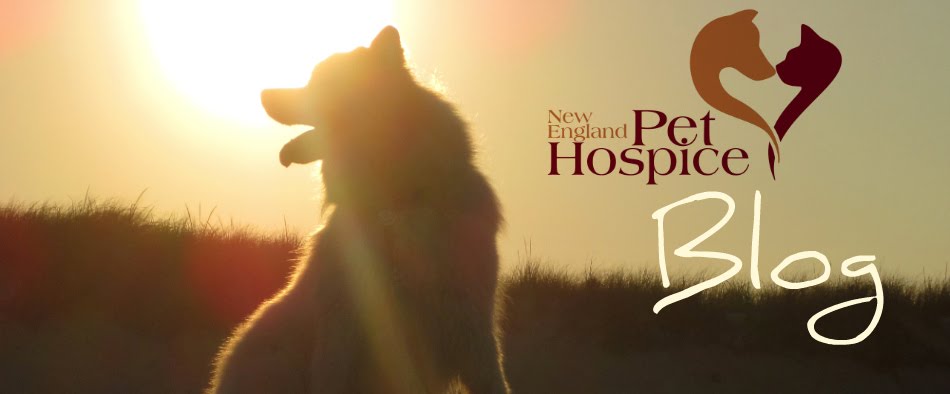It’s that time. Your pet is at the very end of life and you know he or she will be passing soon, whether naturally or through euthanasia. We call this the “What Now Moment” because sometimes the passing itself can seem awkward and anti-climatic. You have been working so hard to care for your pet and in an instant it is over. You are left with many emotions and you don’t know what to do.
Everything we know about grief tells us that to process the grief, we need to act. That’s why people have rituals and why people feel moved to bake, cook, write cards, send flowers, offer a lending hand. We begin the healing by doing.
So what will you do? Right now, it may be all you can do to think about the end, but there are things you can do to prepare and make the moments at and around your pets passing more meaningful. It is best to think about this in advance. Have a plan ready with any items you might need or want readily at hand. You are likely to forget or be confused when the time comes, so write it down, jot a list, have a special place for keeping whatever you may want or need. Whether you use it or not, just having it can be a comfort. We want to minimize regret – the feeling that, “I wish I had done” or “I wish I had thought of” something.
What you do at that time can be uniquely yours and personal. Here are some thoughts to get you started, but do not feel constrained by them.
1. Start by thinking about your pet: what things does he or she love? Is there a special bed or blanket? Toy or game? Smell or sight? Kind of music?
2. Think about your own personal and spiritual beliefs: would you like to light a candle? Would you like to say a prayer or poem? Would you like to sing a song or hymn? It may be difficult for you to voice your feelings at such an emotional time, so you may want a friend, family member or clergy to be with you to give voice to your words. Or you may wish to record them in advance so you may play them rather than speak them.
3. Think about your children and family members: what might they like to do? Tell a story? Create a picture? Tell your pet something special?
4. Think about your other companion animals. How might they participate? Giving them the opportunity to witness the passing or see the body after death can help them process the grief and death also. Often, seeing other companion animals grieve can be heart wrenching and helping them through the process is an important role for us humans as well.
5. Think about what you will do with your pet’s body after death. In almost all cultures around the world and in all times, preparing the body and arranging it are sacred, important rituals for those closest to the deceased. Partly it is a necessary job, but more it is a way of expressing love, care and respect in a time that might otherwise feel empty. You may wish to have a special bed or blanket for your pet, spend some time grooming him or her after the passing and arranging your pet so that he or she looks comfortable and at peace. Whether you choose burial or cremation, this ritual can bring you comfort and a lasting image of your pet at peace.
Most of all, be sure to be gentle with yourself and take time. In our society, we want everything to move fast, but grief doesn’t. It takes time to grieve and it takes time to heal. Give yourself and your family permission to take that time and not feel guilty or wrong in doing so.

No comments:
Post a Comment